The 21st century: more cracks in Arab countries
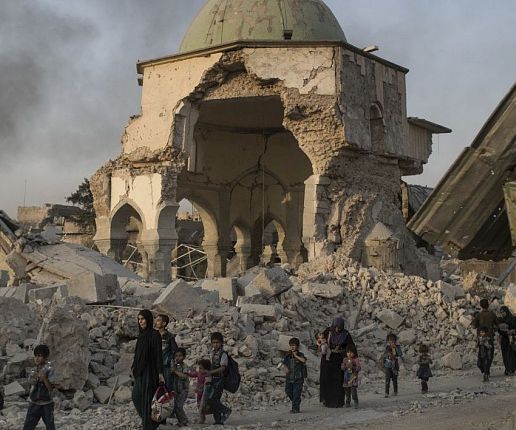 Article by Shehab and Maria Al Makahleh
Article by Shehab and Maria Al Makahleh
The coming war against Iran is pushed by some Arab rulers rather than Israelis who are benefiting from the state of rivalry and enmity between a number of Sunni Arab countries against Iran, blaming Tehran for threatening their countries and interfering in their internal affairs. By the same token, US President Donald Trump has announced his country's withdrawal from the nuclear deal with Iran early May 2018 and he will not accept any amendments to the pact as he insists on changing the whole deal to include Iranian ballistic missiles.
After years of breakneck and ruthless fighting, Syria and Iraq are slowly stabilising after defeating most of the terrorist groups in both countries. However, the international influence in the Middle East brings massive problems to the region: high level of tension between Iran and Israel, hostility between Saudi Arabia and Iran, and stability of oil prices, terrorism, and political rift between old regional allies. Chaos will continue in the region and it will rather escalate with no signs of plummeting as the international and regional powers are not willing to bring veneer of order to the region, which will lead anarchy after stability in some countries which started to breathe a sigh of relief. Will international powers keep fueling Sunni-Shiite infighting? Will Iraq, Syria, Libya and Yemen be in ruins?
The answers come from the meetings of American administration regarding forming a new alliance against Iran to impose new sanctions on the country and to force the international community to abide by what the US wants. This justifies his recent appointments of the three hawkish officials to his administration: Mike Pompeo as Secretary of State, Gina Haspel as CIA director and John Bolton as National Security Adviser. The three of them are against Iran and the nuclear deal as well. Thus, they will seek to implement what Israel wants, represented by its far-right government, which is planning and working hard to prevent Iran from developing its military industries and overthrowing its political regime. Unfortunately, there are Arab countries that share aggressive intentions of the US and Israel. They purchased American weaponry for hundreds of billions of dollars, normalising ties, forgetting the Israeli-Arab conflict by labelling it as Israeli-Palestinian issue, ignoring US president Donald Trump’s recognition of Jerusalem as the capital of Israel. Bringing back Bolton to power poses a high risk as it pushed the US to war edge. The hawkishness of the two other officials will also lead to one or two regional wars in the Middle East.
The US and Israel as well as a handful of Arab states do not hesitate to ally with Israeli government’s expansionist policies. These countries have been behind the destruction of Iraq in the 1990s and they are the ones who highly contributed to the destruction of Syria, Yemen and Libya, neutralizing Egypt and alienating it from national role to confront Arab real enemies overseas. Since 1973, we have not seen a true Arab battle against Israel. The reason is, that many Arab states, even those which have no normal ties with Tel Aviv, have sought neutrality in the Arab Israeli conflict for their own survival, regardless of the fierce war Iraq had to undergo against Iran and the hundreds of thousands in death toll in both sides and the volume of destruction in Iraq, Syria, Libya and Yemen for these “friendly" to Israel Arab countries in order to thrive and to avoid any setback on their economies. No one would ever believe that such cities and states would develop without the Iraqi sacrifices against Iran at that time which the Iraqis are paying until now. It is the same countries which push forward for prolonging the war in Syria, Yemen and Libya as well as other places in the Middle East as this serves the economies of those who are lobbying for the “Century Deal” at the expense of Arabs: Christians and Muslims.
For many Arabs, Iran is not the enemy of Arabs; it is the enemy of the minority of Arabs, who are under the influence of the West. Israel believes that Iran is its enemy which Tel Aviv seeks to destroy before Tehran becomes a major power that would threaten Israel’s presence in the region. Why do some Arab rulers conspire against Arabs? Who will benefit from a devastating war in the region? What gains will get the Arabs who will be involved in the battle against Iran or Syria, if pushed to by the West and Israel? What happens if Iran wins the battle?
Observers believe that Arabs will not achieve anything useful from any regional war against Iran and its alliance or Turkey and its coalition. Supposedly, if a war breaks out between Israel, the US and its Arab allies against Iran, the end will be that the Areb countries would be further divided to be better controlled and monitored by Israel and its Western allies, where oil and gas resources will be fully controlled by these countries for decades to come. However, if Iran wins the war, the first victims will be those countries which have taken part in the aggression against Iran and its allies. By then, new demonstrations in the region will arise against Arab rulers who have destroyed their countries’ economies and armies for the sake of foreigners and who mortgaged their states’ wealth and natural resources to their enemies.
Arabs are a nation plagued by some failed rulers who cannot read the international developments and threats correctly, and who prefer to cooperate and ally with the enemies of the nation. The greatest enemies of the Arabs are some Arabs who conspire against their peoples for the sake of their enemies who have no morals and who do not respect their promises.
In Munich Security Conference which was held February 2018, most Arab governments have demonised Iran and considered Tehran a greater enemy; their behind-the-scenes collaboration with Israelis against Iran has become an uncluttered secret. The West including the US along with Israel are aligning with some Arab because oil is a crucial concern and a top priority. Thus, demonising Iran or any other country other than Israel at this time is very fruitful as this will be a credit for the Americans and their allies in the West to abuse the Arabs and abuse their resources to the last single penny.
Is it likely that the Middle East will be redrawn, but this would happen in the coming ten years with the creation of an independent Kurdistan state even if Turkey and Iran fight against that tooth and nail. The next era will witness not only partition of countries that witness infighting, but also those which will witness chaos in the coming years dividing countries whose areas are millions of square kilometers into various states. The Arab world will continue cracking further and Arabs will be seeking shelter in other countries in waves of immigrants.
Article published by Valdai club: http://valdaiclub.com/a/highlights/the-21st-century-more-cracks-in-arab-countries/
Photo credit: Felipe Dana/AP
Disputes over Iraq and Syria: Strategies and ramifications
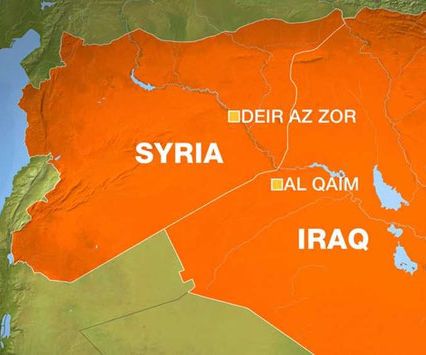 Disputes in the Middle East cannot be resolved unilaterally. They can only be tackled collectively, through integrated regional and international cooperation. This applies to challenges such as the Palestinian cause, terrorism, Arab-Iranian conflict and other lesser predicaments.
Disputes in the Middle East cannot be resolved unilaterally. They can only be tackled collectively, through integrated regional and international cooperation. This applies to challenges such as the Palestinian cause, terrorism, Arab-Iranian conflict and other lesser predicaments.
Some political observers believe that the Arab-Iranian dispute should be addressed even before the Palestinian-Israeli issue. Since 1967, the Middle East has been a hub for the worst military conflicts and wars.
About 22 percent of world’s conflicts have been concentrated in the region during the past three decades. When the eight-year Iraqi-Iranian went on from 1980 to 1988, both countries lost more than 2 million soldiers.
UN statistics reveal that about 40 percent of the total number of those killed in armed conflicts have fallen in the Middle East since 1980 until the end of 2017. Such conflicts have complicated the political scene and have led to further chaos when the Arab Spring erupted in some Arab republics.
Up to 72 percent of world war toll and military conflict fatalities have been reported in the Middle East. Moreover, the Middle East has the highest levels of terrorist attacks since 2003. Incidents of terrorism increased by 50 percent, leaving many countries behind owing to their impact on economies.
Iran and Arab states are heading toward direct regional conflict that would drive Israel to intervene by targeting some strategic sites in Iran to turn balance of power
– Shehab Al-Makahleh
Balance of power
Many states harbor a strong belief that their main enemy is Iran as it tampers with the stability of Arab countries. This started with Iraq, Lebanon, Yemen and Syria. Since no conflict can take place without the pretext, if the root cause is to be resolved then changing the balance of power and the regime in Iran are a must.
As Iran was eying Iraq since 1980s, after regime had changed in Tehran in 1979, a conflict broke out which saw in the Iranian expansionist policies a strategy to rule over the whole region.
The first Iranian step was to control Iraq after American pullout because Iraq is in the north of the Gulf and Iran is located to the east of the Gulf States.
This is likely to pose a major threat to Gulf states as Iraq is geographically and strategically located between three major powers: The Gulf Cooperation Council (GCC) states, Turkey and Iran.
Iranians have sought to play the Iraq card first before moving to play other cards which include sectarianism, the cards of Syria, Lebanon and Yemen. Iran believes that an Arab-Iranian model can be created through the Iraqi gate, with the support of others – such as Russia, Syria – without reaching a compromise between Arabs and Iranians in such a conflict.
There is a firm belief that the Iranian regime should be changed in order for the country’s policies to be changed accordingly. Hence, changing the regime of the Vilayat al-Faqih may be considered a regional and international necessity before the possibility of confluence of Iraq and the other Gulf states in the form of an alliance or to form a new regional system.
No peace deal
But why all previous wars have ended with no peace deal or surrender agreement? The Iran-Iraqi war ended on August 8, 1988 with a truce but without a peace or surrender agreement being signed. The same applies to the two wars against Iraq.
Thus, the answer is simply tacit which bears the seeds of a war that would erupt any moment. Should this happen, Iran will be forced to leave Iraq and Syria to protect its borders.
Iran looks at Arabs, whether Sunni or Shiite, from a heritage perspective. It considers the GCC a springboard backed by the West to besiege Iranian revolution.
On the other hand, Gulf Arabs regard the Iranian revolution as an existential threat. This was exemplified by Khomeini who called on Arabs in the Gulf to stir up revolution.
Iran and Arab states are heading toward direct regional conflict that would drive Israel to intervene by targeting some strategic sites in Iran to turn balance of power. The month of May is very critical where the future of the Middle East region will be at stake.
Article published in Al Arabiya: https://english.alarabiya.net/en/views/news/middle-east/2018/05/11/Disputes-over-Iraq-and-Syria-Strategies-and-ramifications.html
The significance of the upcoming Iraqi elections
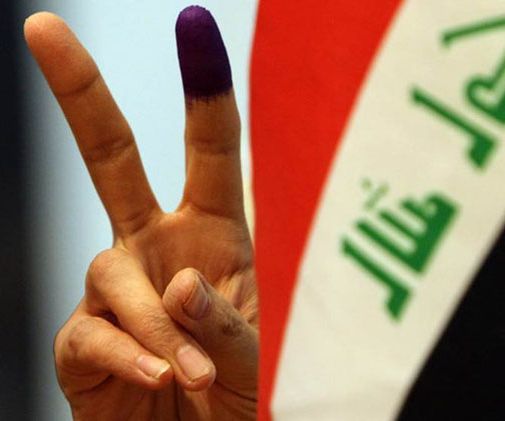 Campaigning began on Saturday ahead of the Iraqi parliamentary elections, which will be held on May 12. Some 7,000 candidates have registered to stand and will compete for 329 parliamentary seats. But how will the elections affect Iraq’s relations with its Arab neighbors?
Campaigning began on Saturday ahead of the Iraqi parliamentary elections, which will be held on May 12. Some 7,000 candidates have registered to stand and will compete for 329 parliamentary seats. But how will the elections affect Iraq’s relations with its Arab neighbors?
For the first time since the rise of Daesh, Iraqis across the country will be able to cast their votes at the ballot box. Voters will elect the representatives they want to guide the country out of its political, economic and security quagmire. Many candidates hope to return Iraq to its pre-1991 era, when the country led the Arab world in various fields. And with many countries in the Middle East supporting different candidates and blocs, regional players will be hoping for a result that best serves their interests.
After the US intervention in Iraq in 2003, many Arab countries chose a state of non-interference in Iraqi affairs, but they may have paid a heavy price for this policy of self-restraint, as it allowed Iran to extend its influence in Iraq. In spite of this, key regional players like Saudi Arabia are now seeking to reactivate the relationship between the two countries in an effort to achieve common political, security and economic goals.
Iraq’s Arab neighbors are possibly seeking to take advantage of the opportunity brought about by strained US-Iranian relations under the Trump administration in order to restore the days when they had a presence in Iraqi politics. They hope to regain influence in Iraq to protect their interests and security, since the country has become an almost exclusive arena for Iranian influence.
In security terms, Iraq is now ruled by opponents of the regime of Saddam Hussein, most of whom have returned from exile in Iran. The country’s neighbors may now seek to strengthen their relations with the Iraqi government in order to protect their borders and to limit Iran’s ability to influence factions against their interests.
Many candidates hope to return Iraq to its pre-1991 era, when the country led the Arab world in various fields.
– Maria Dubovikova
The Iraqi governments since 2003 have disrupted their relations with neighboring Arab countries in favor of Iran. Iraq has suffered a lot through sectarian wars, the proliferation of violence and terrorism, and the conflict between its rival political camps, depriving the country of stability and development. Now, Iraqi leaders believe that a development of the relationships with its neighbors will positively affect Iraq and pave the way for it to regain its status among Arab countries.
The Iraqi government is almost entirely isolated in the Arab world because of the Iranian influence in its politics and military. Therefore, Baghdad hopes to develop bilateral relationships to obtain an effective regional presence. Prime Minister Haider Abadi, in particular, is seeking gains to reflect positively on his future and against his rivals.
Iraq is also suffering from the negative effects on its economy of the continued restrictions on its borders with Saudi Arabia and Syria. Iraq’s poor infrastructure and the deterioration of its economic conditions have impacted the social stability of its citizens and their relationship with the government. The more stable Iraq is, the more economic benefits its people will gain from open borders with their direct neighbors.
But challenges may hinder the development of Iraq’s relations with its Arab neighbors, some of which may be constrained by the negative image created during the recent past that Iraq is under the influence of non-state actors and Iran. The presence of armed militias loyal to Tehran is a major challenge.
Relations between Iraq and the rest of the Arab world are still in the process of normalization, reconciliation and the resolution of problems. Confidence-building measures would be welcome, as well as developing and strengthening their cooperation. The development of Iraqi-Arab relations depends largely on Baghdad’s post-election desire to develop these ties and reduce the influence of Iran within its borders.
Article published in Arab News: http://www.arabnews.com/node/1287166
Competing powers unable to find a cure for ‘sick man’
 The paradoxes between the strategic priorities of global and regional powers are an inherent trait of Middle Eastern conflicts. This was clear when Iraqi Prime Minister Haider Abadi said last month: “The priorities of Western countries are contrary to those of the countries of the region. Therefore, the process of finding solutions to the crises of the region has not been possible; the clear examples are the Syrian, Libyan and Yemeni crises.”
The paradoxes between the strategic priorities of global and regional powers are an inherent trait of Middle Eastern conflicts. This was clear when Iraqi Prime Minister Haider Abadi said last month: “The priorities of Western countries are contrary to those of the countries of the region. Therefore, the process of finding solutions to the crises of the region has not been possible; the clear examples are the Syrian, Libyan and Yemeni crises.”
It is well known that the West, led by the United States, is serious in its fight against terrorism in Syria and Iraq. However, Western countries build their alliances not with governments but with specific groups, ethnicities or minorities — this prolongs the war on terrorism. On the other hand, the priority of some European and Middle East states, such as Egypt, Saudi Arabia and the UAE, is to remove the Muslim Brotherhood’s influence. On the contrary, Sudan, Turkey and Qatar support the group. This conflict of priorities has led to the escalation of crises and prolonged regional wars.
The changes that have taken place within Western countries, mainly after the rise of populist trends in America and Europe, have led to radical shifts in their policies toward the Middle East. For instance, shortly after US President Donald Trump was sworn in, he changed American foreign policy regarding the Middle East, ending the approach of former President Barack Obama, who preferred a state of non-interference.
The last seven years have witnessed an expansion of the influence of regional forces threatening Western powers’ interests. This has been a result of erroneous policies adopted by Western countries, such as the change of the political system in Iraq and the support extended to the Arab Spring, which has led to security and political vacuums in some countries, allowing terrorist organizations to emerge. The priorities of the international community have turned from changing political regimes to fighting terrorism. Though the terrorist threat has not yet ended, but has rather cloned into other forms, the focus has moved to how to counter Iran’s influence in the Middle East.
Only Middle Easterners should have a say in solving their issues and avoiding sectarian wars — the international players should just monitor and help the Arab world achieve a positive solution.
– Maria Al Makahleh (Dubovikova)
The contradictory agendas of international and regional powers will not lead to a solution to the conflicts in the Middle East but rather will lead to complicating them, helping them reach a state of deadlock; causing further arms races, more bloodshed and anarchy. The Middle East is currently witnessing rapid change, with zero-sum outcome wars and inevitable conflicts between several international and regional actors. What people in the Middle East ignore or pretend is not true is that the world at present is not the world before 2011. The foundations of the global political and military systems have changed within a structure that enshrines control and exclusivity of power within the US, Russia and China, who delegate some regional powers to act on their behalf. History does not repeat itself, but events are the same.
The most important outcome of this game is to build the foundations of an era of collective security. All means are available in this risky game because the most important thing is a Middle East with no sectarian war. Iran is a major political influence in the region and it is also a military power, so much so that even superpowers make careful considerations before taking action against its army. Where would a regional war take place? Iraq, Lebanon, Syria, or anywhere else in the region?
Are we in the midst of a new Marshall Plan for rebuilding the Middle East? The inevitable outcome of this game is a comprehensive peace that will be followed by strategic and psychological variables that will allow Middle Eastern countries to develop political stability and peace with more moderate and open cultural and political concepts.
In the 20th century, the “sick man” was the Ottoman Empire, and in the 21st century it is the turn of the Arab world. Arab interests are at stake because of structural weakness and disintegration, which comes as a result of the fall of Iraq in 2003 under the US-led invasion. Since then, the Arabs have lost their compass and can’t find their way.
Middle Eastern political actors are striving to have a say in the future of the region, to have a seat for the journey and to turn from being paradigms into effective models. For this purpose, it is important to note that China is pushing to achieve its One Belt One Road Initiative at the same time as the Century Deal led by Washington and Riyadh. To what extent these two projects will succeed without colliding or clashing, only the next few months will reveal.
The chaos the Middle East is undergoing will lead to more losses. Only Middle Easterners should have a say in solving their issues and avoiding any sectarian wars that could destroy everything. The international powers should just monitor and harmonize the players to reach a positive solution and avert any destructive repercussions.
Article published in Arab News:
The Arab World: between violence and consensus
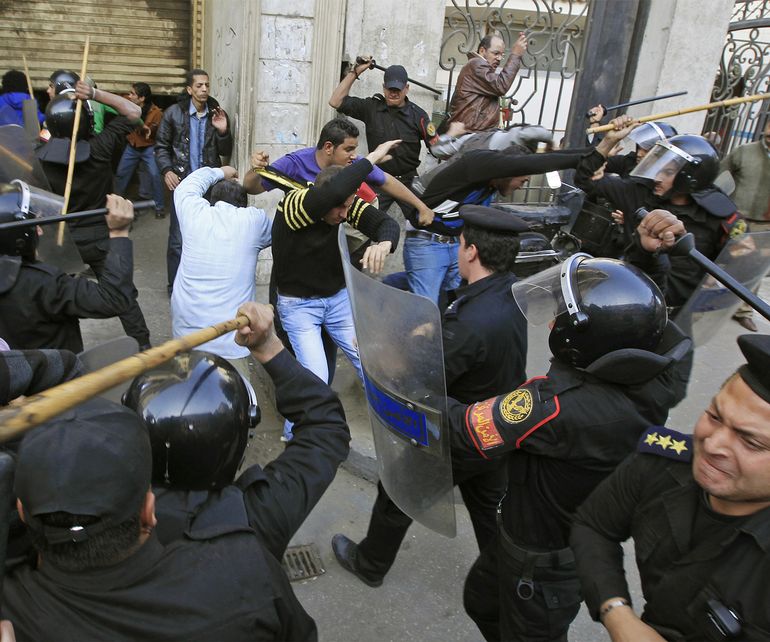 Perhaps the most significant element of the socio-political life of the region during those years, at least to the outside observer, was violence.
Perhaps the most significant element of the socio-political life of the region during those years, at least to the outside observer, was violence.
The Syrian Civil War has claimed between 200,000 and 500,000 lives. As many as 70,000 people have lost their lives as a result of two civil wars in Libya. And the Yemeni Civil War counts several thousand among its victims, with the humanitarian catastrophe it is leaving in its wake has affected millions.
We have worked ourselves into a situation in which an enormous region, one that stretches “from the Ocean to the Gulf” and counts hundreds of millions of people among its inhabitants, lives in never-ending fear of violence.
Terrorism has become a part of everyday life in the “calmer” countries in the region, Tunisia, Egypt and Turkey. While the number of victims of terrorist attacks in these countries is hardly comparable to the numbers of lives lost as a result of the armed conflicts mentioned above, the very threat of another attack means that people live in constant fear. And this provides the authorities with ample justification for introducing the most severe repressive measures.
We have worked ourselves into a situation in which an enormous region, one that stretches “from the Ocean to the Gulf” and counts hundreds of millions of people among its inhabitants, lives in never-ending fear of violence.
Equally damning is the fact that this is precisely how the region is beginning to be perceived by the outside world.
This perception is largely unfair.
Turkey, Egypt and Tunisia are not the only playgrounds for terrorists; so too are Barcelona, Nice, Paris, Berlin, Boston, St. Petersburg and many other ostensibly safe cities.
The majority of the political regimes in the Middle East are perfectly stable, and the reforms implemented in Morocco, Algeria, Tunisia and Jordan following the events of 2011, have had a positive effect on the development of these countries, especially against the backdrop of the misfortune that has befallen the region as a whole.
Even the most problematic countries – Syria, and even Libya and Yemen – have not experienced a complete of statehood. What is more, modern mechanisms (elections, multi-party political systems, etc.) are becoming increasingly important for regulating political life in the powder keg that is Iraq, and also in Lebanon, which seems to transition endlessly from one crisis to the next.
Despite this, the feeling of all-encompassing violence remains. The problem here is not just the negative information environment, which paints a picture of the Middle East as a region of out-and-out chaos, but also the fundamental change that has taken place in the social and political mind-set of Arab societies. Perhaps for the first time in history, violence has become a problem for them.
To be sure, in modern western (and Russian) socio-political discourse, minimizing violence is a given and is barely even questioned. Nobel Prize winner Douglass North believed that reducing the level of violence is the main criterion for determining the development of social order.
Although this has not always been the case. Not by a long shot.
It is noteworthy that in European political philosophy, the problem of violence as such did not exist until the late 18th century. Plato, Aristotle, Augustine of Hippo, Machiavelli, Hobbes, Locke – none of these spared a thought for violence, per se, in their meditations on politics. They were more concerned with civil unrest, war, turmoil, rebellion, etc. In other words, the things that disrupt order. But not violence.
It was only with the writings of Immanuel Kant that the imperative of nonviolence started, rather tentatively, to take root in European social thought, at the same time that the diametrically opposite notion – the poetization of violence spearheaded by Hegel – began to spread.
While two world wars may not have been enough to put an end to such romanticism, they certainly took the sheen off for its most ardent followers. In terms of the philosophical analysis of political life, violence became almost a universal category in its own right, one that set the parameters of philosophical thinking for several generations of thinkers, starting at least with Michel Foucault. North’s theory emerged as a consequence of this process, and the requirement of nonviolence came to be seen as a natural in political science. Documents such as the Responsibility to Protect (for all its imperfections and divisiveness) were created as a projection of this this approach onto international relations.
However, this approach, generated by European experience and Western consciousness, cannot be considered universal. It has not fully taken root even in Russia, where technological breakthroughs and the victory in World War II are often cited as justifications of Stalin’s repressions.
Middle Eastern societies have never seen violence as an essential problem. We could name hundreds of works by 20th-century Arab thinkers on the problems of the nation, the state, democracy, justice, etc. But how many works are dedicated to the issue of violence? Not many.
The Iran–Iraq War took two or three times the number of lives that the Syrian Civil War has.
The growing significance of violence as a problematic issue is overlapping with another important social change that is taking place in the region, namely, the strengthening of civil society.
Nobody knows how many people suffered as a result of the repressive policies of Saddam Hussein and Muammar Gaddafi. The murder of 1270 prisoners at the Abu Salim prison in Libya in 1996 was just one episode. Nobody knows exactly how many such incidents actually took place.
The suppression of the Houthi insurgency in Yemen in 2004–2010 (i.e. before the Arab Spring) resulted in several tens of thousands of human casualties.
All this caused a barely audible murmur of discontent outside the region, but it was never a reason for the de-legitimization of regimes within the societies themselves.
Today, however, we are seeing the issue of violence becoming increasingly important in all the countries in the region. And this increases the demands on political regimes.
While there are political prisoners in many countries – in some cases tens of thousands – the authorities are being forced to spend ever greater efforts justifying the situation. Sometimes this is simply impossible.
From Violence to Consensus
The growing significance of violence as a problematic issue is overlapping with another important social change that is taking place in the region, namely, the strengthening of civil society.
In some countries, this is the result of reforms passed by the respective governments in response to the challenges that have appeared during the past decade. In others, it is the consequence of weakening statehood and the emerging need for socio-political self-organization of society.
The number of non-governmental organizations in Tunisia has more than doubled since 2011, and by almost 2.5 times in Morocco. The number of such organizations remains small in Jordan, but has increased by 1.5 times nevertheless, while there has only been a slight increase in Algeria, although the figure was rather high in that country to begin with. The newly established non-governmental organizations in these countries (which have managed to avoid mass violence) make it possible to involve more and people in civil. In this respect, it is not really important where they get their money – from the government (as in the case of Morocco), or from outside sources (Tunisia).
Civil society nevertheless makes itself known in states that are embroiled in armed conflicts. In Syria, the development of civil society is connected with organizations that work with refugees, as well as with numerous structures in Damascus-controlled territories and with local councils operating in the liberated territories.
In Libya, the need for self-organization among the people has forced them to form local authorities along both tribal and territorial principles.
A more active civil society, coupled with the problematic issue of violence, leads to the development of the principle of consent or compromise (taufiq), which assumes that political decisions are adopted not as the result of the victory of one side over another, but through a process in which the sides search for an agreement together.
The principle has been developed most successfully in Tunisia, where the Tunisian National Dialogue Quartet was able to bring an end to the civil confrontation of the government and the opposition.
The idea of Special Representative of the UN Secretary General for Libya Ghassan Salamé to hold an inclusive National Congress and his putting forward of the Libyan municipalities as the basis for the restoration of the country is another indication of movement in the same direction.
The proposal once put forward by Turki bin Faisal Al Saud to arrange a Second Syrian National Congress was also based on a commitment to taufiq. The subsequent dynamics of the conflict prevented the idea from becoming a reality, however.
The roots of taufiq can be traced back to entirely different political traditions that existed in the region. The principle can be considered an element of democracy, one that involves the search for compromise between competing parties. However, it can just as well be seen as the embodiment of the foundations of Islamic political culture. The principle of consultation (shura); the primary role of experts in political decision-making; and the consensus of opinions (ijma) – all these principles have become part of Islamic political thought and point to the recognition of its “culture of compromise.” The origins of taufiqcan be found in the idea of a corporate state that was once very popular among Arab nationalists. They can also be found in the traditions of tribal self-government, if one so desires. This kind of universality makes the principle acceptable for all political powers operating in Arab societies.
At the same time, it is clear that in mature democracies, as well as in political systems based on Muslim law, regimes built by Arab nationalists and tribal societies, the culture of compromise has not always been followed.
Moreover, practice has shown us that it can only be successfully implemented when the sides in a political confrontation (armed or otherwise) have no reason to hope for a decisive victory, or if the risks of continuing the confrontation are seen as unacceptably high. This is why it was impossible to reach a compromise in Bahrain and Yemen, and why it has thus far been impossible to achieve a compromise in Syria.
Nevertheless, continued tensions, the development of conflicts in these countries and the weakening of the guardianship of the all-powerful political elites over society, coupled with the pervasive fear of violence, may very well act as an impetus for the formation of a political culture of consensus.
Article published in RIAC: http://russiancouncil.ru/en/analytics-and-comments/analytics/the-arab-world-between-violence-and-consensus/
Photo credit: REUTERS/Goran Tomasevic
Trajectories of the 2018 US policy in the Middle East
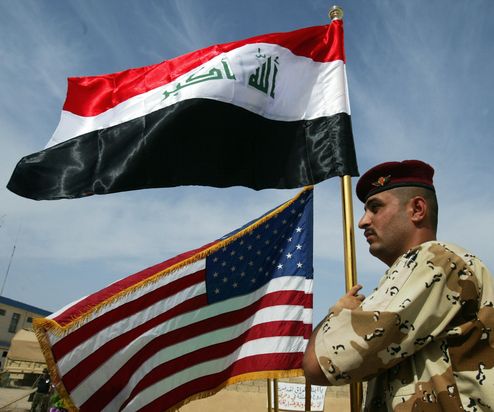 The importance of the Middle East region for the US stems from the fact that it is part of a wider geography which includes Europe and Asia, whose security has been one of the main American concerns since the 1900s.
The importance of the Middle East region for the US stems from the fact that it is part of a wider geography which includes Europe and Asia, whose security has been one of the main American concerns since the 1900s.
US involvement in Middle East this year will be more than in 2017 as it will try hard to find a new balance of power
Shehab Al-Makahleh
US in the Middle East in 2018
The US policy in Syria
Will Iraq’s upcoming elections be dead on arrival?
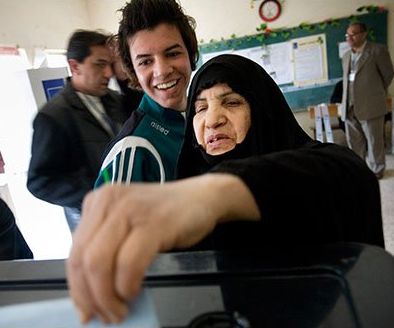 On December 5, 2017, Iraqi Prime Minister Haidar al-Abadi, announced that provincial and parliamentary elections will be held on May 12, 2018; yet, many domestic events and regional developments would delay the elections as the Iraqi community is undergoing many societal and economic as well as political hardships.
On December 5, 2017, Iraqi Prime Minister Haidar al-Abadi, announced that provincial and parliamentary elections will be held on May 12, 2018; yet, many domestic events and regional developments would delay the elections as the Iraqi community is undergoing many societal and economic as well as political hardships.
As the date of Provincial Councils and the House of Representatives elections is approaching, some Iraqi leaders started to call for further procrastination due to two reasons: The first is the bad financial situation in the country, and the second is the that more than four million displaced Iraqis have been sheltered in various places of Iraq which are not part of their original constituencies. They will not be able to return to their homes in the coming few months. That would force the government to announce the postponement.
Corruption and terrorism
Whether the elections will be held on the scheduled date or not, Abadi, depending on his victory over ISIS and his attempts to counter corruption, will be able to free Iraq of uni-polarity and dominance of one party.
Shehab Al-Makahleh
The End of ISIS is in Sight. What is Next?
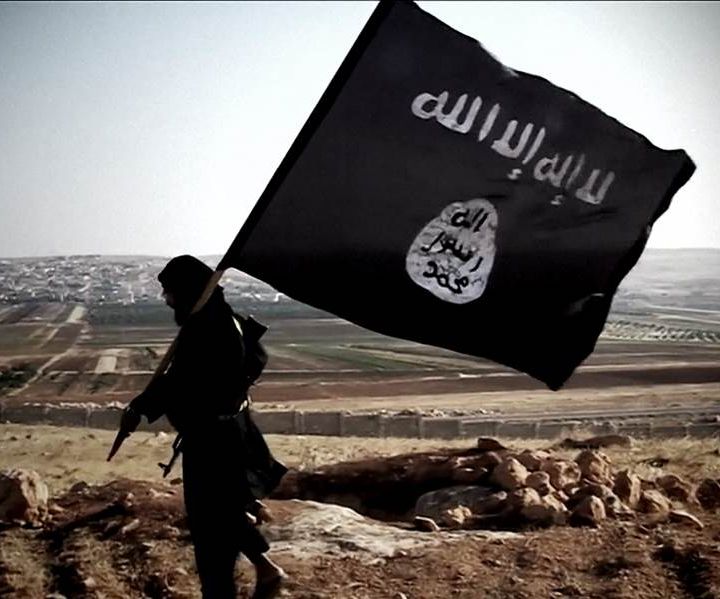 Article by Shehab and Maria al-Makahleh
Article by Shehab and Maria al-Makahleh
Given that the last strongholds for ISIS (known as Daesh in the region) in Raqaa, Syria and Mosul, Iraq have fallen, it is likely the group in its current territory-based form will gone by the end of 2017. Only weeks ago, Daesh was allowed to leave central Syria before the Syrian Army closed the 5-kilometer gap between Al-Raqqa and Homs. Last month, Russian President Vladimir Putin said that Syrian government forces, supported by the Russian Air Force, had liberated over 90 percent of the country’s territory.
Fortunately, there has been a plan for this moment. The Americans and the Russians—the main power brokers in the conflict– have been in direct talks regarding the future of Syria since 2015; indeed, everything is on the table regarding a transitional phase, the presidency, and even the future governing body. According to leaks and news reports, the two sides have agreed on that the president and transitional governing body shall exercise executive authority on behalf of the people but in line with a constitutional declaration. As for the president, he or she may have one or more vice presidents and delegate some authorities to them. This draft will be proposed during the Geneva Conference at the end of November.
As for the transitional governing body, it reportedly will serve as the supreme authority in the country during the transitional phase. According to drafts we have seen, it is proposed to have 30 members: 10 appointed by the current government, 10 from independent individuals named by the UN Secretary General and 10 by the opposition. The chairman will be elected from among the independent members by simple majority. This representative structure—which includes representatives from Assad’s government—stems from the recent visits to Damascus by officials from the European Union, Russia and the United States.
According to American sources, an important provision of the new constitution would be Presidential term limits. The proposed article states that “The President of the Syrian Republic shall be elected for seven calendar years by Syrian citizens in general after free and integral elections. The president might be re-elected only for one other term.”
The involvement of the Assad government in these deliberations should surprise no one. Former American ambassador to Syria Robert S. Ford stressed in a recent article published in Foreign Affairs that “The Syrian civil war has entered a new phase. President Bashar al-Assad’s government has consolidated its grip on the western half of the country, and in the east. By now, hopes of getting rid of Assad or securing a reformed government are far-fetched fantasies, and so support for anti-government factions should be off the table. The Syrian government is determined to take back the entire country and will probably succeed in doing so.”
After Daesh, Syria still matters, and not only because of the scale of the humanitarian crisis there. Major political trends in the Middle East tend to happen because big countries want spheres of influence in geostrategic locations. Russia has an interest in Syria, for example, as a Middle Eastern forward operating base, for access to warm water ports, and more generally, to check U.S. influence. The U.S. (and its allies) see in Syria a country cleared of Daseh that must now be “held” to prevent the regrowth of the terrorist caliphate, as a bulwark to protect neighboring Israel, and to maintain the free flow of oil.
In other words, the big countries that represent such geostrategic players such as Syria aspire to influence and change the geopolitical situation within her borders to improve their own strategic position and enable them to gain cards in the Middle East region.
But Syria is not merely a proxy battlefield for the big powers. With the end of Daesh in sight, Syria has a chance to reclaim her sacred sovereignty, which as the basis of the international order gives it the ability to control what happens inside its own borders. The upcoming constitutional process is an opportunity to restart and reconnect the Syrian people to its institutions, which should in turn serve them and only them. It should not be lost.
Article published in Foreign Policy Association: https://foreignpolicyblogs.com/2017/11/28/end-isis-sight-next/
Daesh defeated, but what comes next?
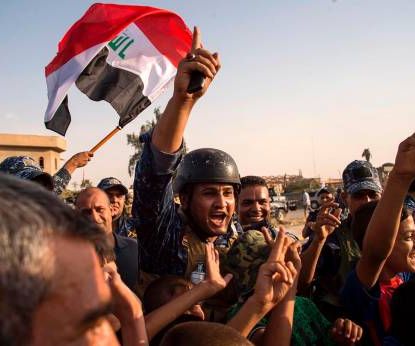 After the demise of Daesh in Syria and Iraq, the question on everyone’s mind is: What comes afterward?
After the demise of Daesh in Syria and Iraq, the question on everyone’s mind is: What comes afterward?
History has proved that defeating the symbols of terrorism has little impact on the phenomenon of terrorism itself, or its ideology — the international community, after all, heralded the defeat of terrorism after the killing of Osama bin Laden.
What happened in Syria and Iraq should be a wake-up call for everyone. The answer to the terrorist threat must be global. Battling against the influence of extremists is part of the nightmare that Muslim populations — tormented by anguish and uncertainty — are suffering daily, with many killings everywhere. The war on terrorism will not end with the defeat of terrorist factions; the many-headed hydra of terrorism will breed more of them from those who are marginalized in their communities, those who are unemployed, and those who have their own, more personal, reasons for becoming terrorists.
Daesh is on the brink of collapse on all military fronts; its cells are likely to continue with bombings and assassinations, but the terror group is no longer able to occupy land or open new fronts.
But after all the blood, displacement and destruction in Syria and Iraq, how will things look on various levels when Daesh is finished?
Perhaps all the bloodshed can lead to a serious reasoned response.
Since the 1960s, decision-makers have not placed terrorism at the top of their priority list. There are various reasons for this: Arms sales are one of them. Terrorism is not perpetrated only by those who have their hands stained with blood. Terrorism starts with dialogue and discourse, notions and concepts; then it expands into a sense of hatred, rejection and exclusion of others before turning into murder. The more extremist the education is, the more bloodshed humanity will witness.
The world must eradicate the circumstances that gave rise to the incubation of extremist ideologies and must neutralize the role of deviant clerics. The role of fighters may end when the fighting does, but the role of artists, intellectuals, the media and civil society can formulate new concepts and breathe life into them without directly interfering with social customs and traditions.
Many of its fighters have fled to many different countries, carrying with them Daesh’s ideology, and waiting for the chance to try again.
Maria Dubovikova
For example, many of the countries most-ravaged by terrorism lack any theatrical movement — the kind of thing that can, through satire and comedy, mix education with entertainment.
These countries should also initiate employment programs and plans to rescue the poorest families from their tragic realities. And perhaps the most important step that must be taken by these countries is to create new education programs for children based on a new vision. They also need to provide young people with sports and social clubs, instead of relying solely on mosques as a gathering place for youth. Of course, mosques and religion can play an important role in the transmission of morals and ideals, but those who would use religion to disseminate hatred and sectarianism must no longer be allowed to do so. Indeed, sectarianism should be officially criminalized through the UN.
One of the major obstacles to defeating terrorism is the rehabilitation of those who have been radicalized. Once they are trapped in the web of terrorism and extremism, it can be very hard for them to extricate themselves from it. A road map must be prepared to accommodate them and lead them back to normality.
Daesh has come to an end as a state; its dreams of a caliphate destroyed. But many of its fighters have fled to many different countries, carrying with them Daesh’s ideology, and waiting for the chance to try again.
After all that Daesh and other terrorist groups have done, and after all the condemnation of their bloody actions, can we now hope that terrorism will not return with other groups under other names? Or is that something we can no longer aspire to?
Article published in Arab News: http://www.arabnews.com/node/1200191/columns
Photo credit: AFP
Iraq looks ahead to its direct Arab neighbors: Jordan and Saudi Arabia
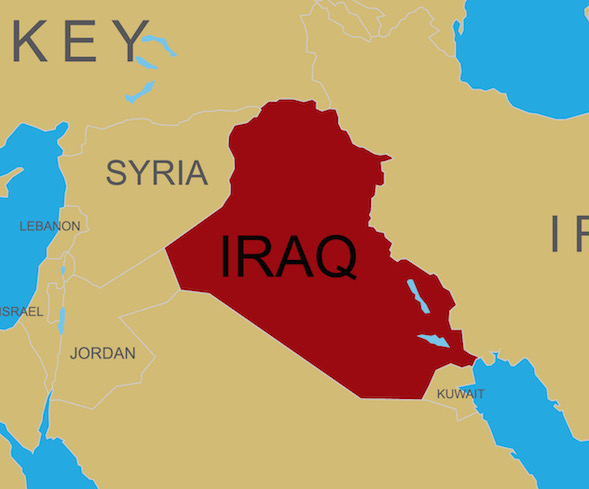 With the demise of Daesh faction in both Syria and Iraq shimmering in the horizon, Iraq has started getting back on track with official visits of top Iraqi officials to Jordan and Saudi Arabia, preparing to re-establish security and to reignite development in the war-torn country.
With the demise of Daesh faction in both Syria and Iraq shimmering in the horizon, Iraq has started getting back on track with official visits of top Iraqi officials to Jordan and Saudi Arabia, preparing to re-establish security and to reignite development in the war-torn country.
Amman has sent an invitation to the Iraqi Shiite leader Moqtada al-Sadr who pays a three day visit to Jordan where he had two closed door meetings with King Abdullah II and held meetings at the highest levels. This visit coincides with Iraqi Prime Minister Haidar Abadi’s visit to Saudi Arabia.
According to Jordanian media reports on the office of the Shiite leader, the latter received an invitation from the king. Prince Ali bin Al Hussein also had talks with the Iraqi cleric regarding "internal Iraqi reconciliation”.
The presence of Abadi in Riyadh is necessarily understandable. Amman has resumed its relationship with Baghdad for some time now, and today there is a trade that passes through the Iraqi "Turaibeel" crossing with Jordan. An oil pipeline is supposed to be on the verge of implementation, and many other economic details are on top of the talks as well. However, Abadi has shed the light on his vision for a unified Iraq on his visit as well as Al Sadr, who prefer a unified Iraq to a divided sectarian country.
Although there are not many details about Abadi's new vision, the Iraqi prime minister wants to send various messages to all regional powers that Iraq can tackle all issues without any external interference. Such two visits of Iraqi officials also coincides with Rex Tillerson to the Gulf States as he issued a statement for Iranian troops to leave Iraq.
Some experts in Jordan believe that such an invitation to a Shiite leader may show a real Jordanian inclination to measure the possibility of a cautious rapprochement with the Iranians through Shiite Iraqi clerics, who are gatekeepers to Tehran.
On the other hand, Iraqi observers believe that Abadi's visit would not certainly stand within the boundaries of the Saudi-Iraqi committee despite the great importance of such as visit to enhance relations between Riyadh and Baghdad at various levels, but it would also inevitably address the volatile situation in the city of Kirkuk. The Iraqi prime minister who headed a high-level delegation of more 60 ministers, officials and government advisers who attended the signing ceremony of the Saudi-Iraqi Coordination Council agreement.
The signing of the agreement of the Saudi-Iraqi Coordination Council, after the meetings and mutual visits between officials of the two countries in recent months, and the talks of the Iraqi Prime Minister on June 14 in Jeddah which resulted in the resumption of flights from Saudi Arabia to Baghdad, after they were suspended for 27 year reflect that Iraq and Saudi Arabia are heading towards a new page of relations, especially after the fall of Daesh.
US Secretary of State Rex Tillerson has taken part in the inaugural meeting of the Saudi-Iraqi Coordination Council. Such meetings are regarded in Baghdad as how the Americans delegate Saudi Arabia to deal with Iraq.
A new phase of joint Arab action began with the warmth of the Saudi-Iraqi relations, which culminated in the visit of Iraqi Prime Minister Haidar al-Abbadi to Riyadh, the establishment of the Saudi-Iraqi Coordination Council and his visit to Jordan few days ago.
Al-Abbadi's visit to Riyadh and Amman in the past few days marks the emergence of a new world in the Arab region after the expulsion of Daesh from Mosul and Raqqa, where the reconstruction phase and the great role regional companies can play in the reconstruction of Iraq.
After four months of Abadi’s visit to Saudi Arabia, he returned to resume talks which are critical to both countries at this time. These mutual visits of Iraqi and Saudi officials indicate the mutual interest of both Baghdad and Riyadh to move ahead with their ties to another level. Such improvement in relations will reflect on the strategic and security cooperation between both countries.
However, the talk about the role of the council indicate that Riyadh wants to have a role in reconstruction of Iraq and may be later on Syria after the end of war on terrorism especially with the upcoming conference that will be held in Kuwait for the reconstruction of Iraq. The other important angle is that such enhancement of relations would empower Iraq balance out its positions and strategies towards regional conflicts to avert any political and military as well a security repercussions which have destroyed Iraq since 2003.
Relations between Saudi Arabia and Iraq were cut for 25 years, before recent rapprochement, after former Iraqi President Saddam Hussein invaded Kuwait in 1990. Saudi Arabia has blamed Baghdad for being in the Iranian orbit and under Tehran’s influence. With the visits of Iraqi top officials to Amman and Riyadh, Baghdad is going to play a pivotal role in the coming era for regional stability and will help regain Iraq to its status before 1990 away from any regional influences. Saudi and Iraqi diplomats agreed at a March 12, 2017 meeting in Riyadh to stop exchanging aggressive remarks against each other and they are willing to open a new page in economic, security and tourism fields despite concerns over Iran's influence in Iraq. Normal bilateral ties between Baghdad and Riyadh would serve both peoples and their interests.











